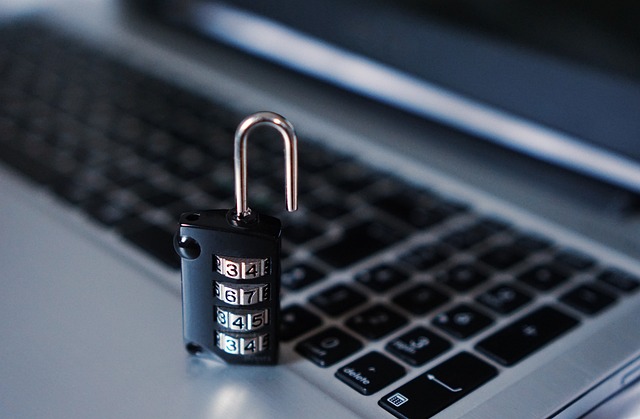Security in critical infrastructure is a vital part of keeping our society running smoothly. Without the proper security measures in place, our most essential services, such as electricity, transportation, healthcare, and food production, could be at risk of disruption or destruction. In this blog post, we will explore why security in critical infrastructure is so important and what steps can be taken to ensure it is maintained.
Here’s an amazing guide for you let’s check: Ways to thwart an abduction attempt- Wikihow
The Importance of Critical Infrastructure
Critical infrastructure refers to the vital systems and services that are necessary for a country or region to function. Examples include energy, water, and waste systems, transportation, financial and health services, and telecommunications. Ensuring that these systems are secure is essential, as any disruption in them can have drastic effects on the economy, public safety, and day-to-day life. This is why cyber security in critical infrastructure is so important.
Cyber security protects data and systems from malicious attacks and prevents them from being compromised by natural disasters and other unexpected events. By having effective cyber security measures in place, organizations can reduce the risks associated with using these critical infrastructures. Additionally, proper security protocols help ensure that these systems remain reliable, even if they experience outages or other issues. This means that businesses and governments can continue to function without interruption.
The Vulnerabilities of Critical Infrastructure
Critical infrastructure plays an integral role in our day-to-day lives. These systems are responsible for providing power, communications, banking services, transportation, and other essential functions. Without these systems, much of our society would grind to a halt. Unfortunately, as technology has advanced, so too have the security risks that these systems face.
Cybersecurity threats are one of the most serious vulnerabilities that critical infrastructure must contend with. With ever-evolving malicious attacks from hackers and other cyber criminals, these networks are increasingly vulnerable to compromise. Additionally, due to the interconnected nature of the internet and modern communication systems, a breach in one part of the network can easily lead to access to other sensitive areas.
The risks posed by inadequate security in critical infrastructure are quite severe.
In the worst-case scenario, an attack on a critical system could cause major disruption or even damage vital resources, leading to long-term consequences for our economy and society. This is why it is so important that we take steps to ensure that our critical infrastructure is secure. From enforcing strict security protocols to implementing robust monitoring systems, there are a variety of solutions that can help mitigate the risks posed by malicious actors.
The Consequences of Attacks on Critical Infrastructure
When cyber security in critical infrastructure is not taken seriously, there can be serious repercussions. The potential consequences of attacks on critical infrastructure range from disruption of service to loss of life, depending on the target and the severity of the attack.
The most obvious consequence of a successful attack on critical infrastructure is the disruption of service, with potentially far-reaching implications. In addition to affecting businesses and organizations, it can also affect citizens who rely on these services for their day-to-day lives. For example, an attack on a power grid can lead to large-scale power outages, which can cause extreme inconvenience and economic losses.
In some cases, the consequences of an attack on critical infrastructure can be much direr. A successful attack could lead to widespread destruction or even death. This could include a cyberattack on a nuclear power plant, which could potentially result in a meltdown that would have catastrophic consequences.
The security of the critical infrastructure is of paramount importance, and any organization responsible for such infrastructure must ensure that adequate measures are taken to protect it. This means putting in place security rules and protocols that will prevent malicious actors from gaining access to the system. The consequences of not doing so can be extremely serious, as demonstrated by the potential effects outlined above. It is essential that organizations take steps to secure their critical infrastructure and remain vigilant in their efforts to detect and respond to any potential threats.
The Solutions to Improve Security in Critical Infrastructure
The need for security in critical infrastructure is essential in order to protect the many aspects of a country’s economic, social, and public health systems. Cybersecurity plays a crucial role in ensuring the safety of critical infrastructure. There are several steps that must be taken to ensure effective security measures in critical infrastructure:
1. Establish security rules for critical infrastructure:
Governments should take the initiative and implement guidelines and policies that define the security requirements for critical infrastructure. The rules should be enforced by the relevant authorities and should outline acceptable behavior, technical standards, and the consequences of non-compliance.
2. Develop an Incident Response Plan:
Organizations that manage critical infrastructure must create an incident response plan that outlines procedures to be followed in the event of a security breach or attack. This plan should include steps to identify, investigate, contain, and recover from any security incident.
3. Increase Awareness:
Security personnel should be trained on cyber security topics such as attack prevention, threat detection, and response procedures. Additionally, awareness campaigns should be conducted in order to educate the public on the importance of security in critical infrastructure.
4. Invest in Security Technologies:
Organizations must invest in robust technologies such as firewalls, intrusion detection/prevention systems, and data encryption in order to protect their systems from external threats. They should also review existing systems and technologies on a regular basis in order to identify any weaknesses or vulnerabilities that could be exploited by attackers.

5. Regularly Test Systems:
Regular system tests should be conducted in order to identify any potential security issues before they can be exploited by an attacker. Tests can range from manual checks to automated tools that scan for vulnerabilities.
Conclusion
Security in critical infrastructure is of utmost importance. Attacks on critical infrastructure can have a wide range of consequences, from property damage to loss of life. It is imperative that organizations and governments take action to ensure the security of their critical infrastructure, implementing strong cyber security measures and following strict security critical infrastructure rules. Investing in the security of critical infrastructure not only helps protect the safety and security of the population but also helps avoid costly economic damage.






